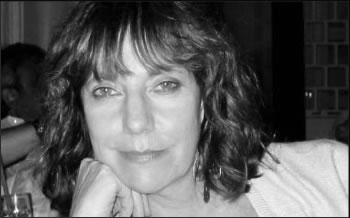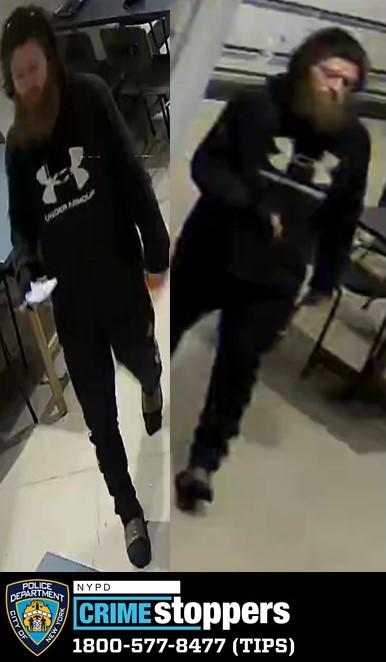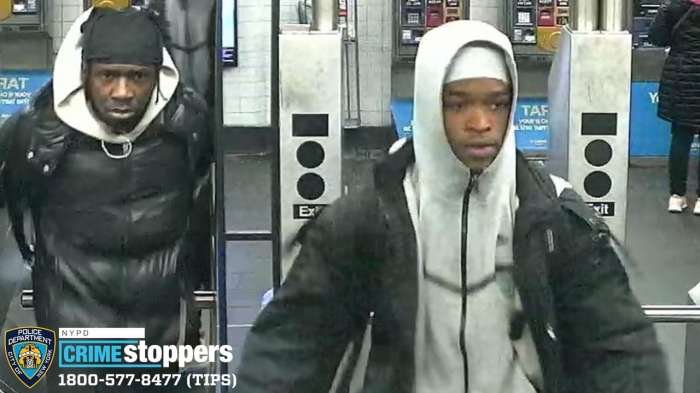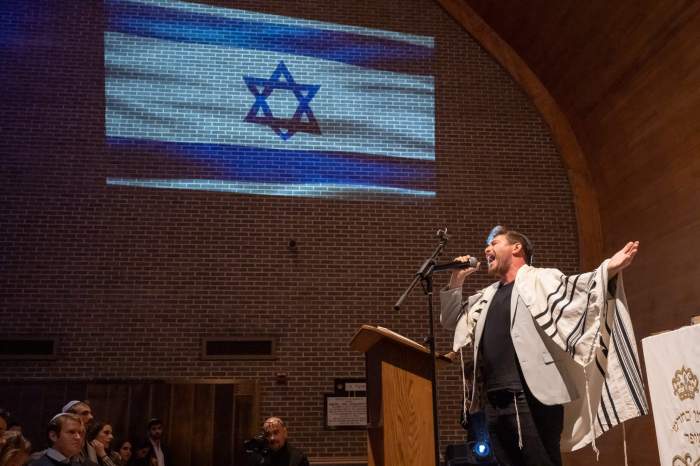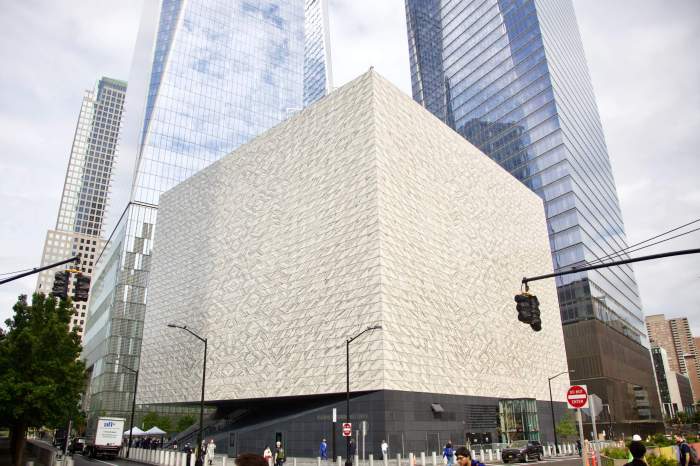Film fest gives pioneering Tribeca artist her due
BY TRAV S.D.
Those thumbing through the catalog for this year’s Tribeca Film Festival may note the recurring name of indie theatre pioneer and long-time Tribeca resident Bette Gordon. This is a big year for Gordon, who figures in no less than three films in the festival. “Handsome Harry,” which she directed, will have its world premiere, as will “Blank City,” a documentary about the indie film and punk rock scenes in New York in the late 1970s-early 1980s. The Festival will also be showing Gordon’s landmark 1984 debut feature “Variety” — often hailed as a feminist classic. If you don’t know Gordon’s work, “Blank City,” directed by Celine Danhier, might be the film to see first. It provides a context for the movement Gordon was a part of, which also included people like Jim Jarmusch, John Lurie, Amos Poe and Nick Zedd — a generation of filmmakers that has come to be dubbed “No Wave.” “In those days there was a lot of overlapping between film, bands, the art world, and performance [art]…all coming together,” says Gordon. “Every generation has its own revitalization. We came too late for John Cage or John Lennon, so we made our own sceIn a roundabout way, you could say that Gordon is partially responsible for the fact that a film festival would even take place in Tribeca — she was one of the neighborhood’s pioneering artists. “I first came here back when I still lived in the Midwest,” says Gordon, “and I happened to visit this amazing bar called the Lower Manhattan Ocean Club. Julian Schnabel was the cook. ‘I want to live in this neighborhood!,” Gordon said. She moved to a loft on Greenwich Street when she was midway through making her first experimental film: “Empty Suitcases.” “Nobody lived in Tribeca then,” she says. “The streets were empty. There was grass growing in the empty lot across the street from my house. At night, you could hear crickets. The whole neighborhood looked like a Hollywood set of a New York City warehouse district.” It was then that she got involved with the Collective for Living Cinema, the neighborhood’s first cinema, which was located in a loft on White Street. She did her part as ticket taker, projectionist, and educator, and got an NEH grant for a series of panels called “Towards a Living Cinema”. She also finished her 16mm experimental short “Empty Suitcases,” portions of which are excerpted in “Blank City.” “I could never line up the same actress to play the main character, a woman,” says Gordon, “So we got several actresses to play it, making the character seem to represent some sort of collective experience.” Critical acclaim for this innovative film made possible what is (to date) her best known movie, the 1984 feature “Variety.” More “Taxi Driver” than Stan Brakhage, “Variety” tells a noir flavored tale of a young schoolteacher (Sandy McLeod)who takes a job selling tickets at a Times Square porn theatre, gradually becoming drawn into the life a gangster (Richard Davidson) who is a customer. The film is a sort of Who’s Who of downtown street cred: music by John Lurie, cinematography by frequent Jarmusch collaborator Tom de Cillo, script by former sex worker and Pushcart Prize-winning feminist novelist Kathy Acker, and roles played by Spalding Gray, Luis Guzman, Mark Boone Junior and photographer Nan Goldin (who also took production stills). The material comes to her naturally, claims Gordon. “When I moved here I wanted to go to all the places where you’re not supposed to go, all the places that were supposed to be dangerous. Times Square, Avenue D, the Fulton Street Fish market. My friend Nan Goldin used to tend bar at this bar on 49th Street called Tin Pan Alley, where we used to hang out, where artists used to hang out, but it also served real Time Square types; strippers, gangsters and so forth. Some of them actually have lines in the film.” Gordon joins feminist critics like Laura Mulvey and others in extending that attraction to danger to the art of cinema itself. “I love Hollywood as much as experimental film,” she says, “In noir, or in Hitchcock, female sexuality possesses this kind of danger, a stepping across the threshold. The whole act of seeing this film which first took shape in your head projected on the big screen and then sharing it with other people feels seductive, taboo. The pleasure of watching a film is slightly sexual. I love that moment just before the film starts, when room goes dark and everyone becomes quiet. In the age of video, people are getting to have that experience less and less.” Her new film, “Handsome Harry,” heads in a surprising new direction: an exploration of male sexuality. The film, penned by Gordon’s Columbia University colleague Nicholas Proferes, is both a gripping realistic drama and a sort of whodunit. It concerns a 50-ish Navy vet (James Sheridan) who is contacted by a dying war buddy (Gordon’s old friend Steve Buscemi, who also figures in “Blank City”). The vet honors his friend’s dying wish to uncover the truth about a bias incident they and their friends had participated in 30 years earlier, in which the bunch of them gay-bashed the hero’s best friend. The all-star cast also includes John Savage, Aiden Quinn, and Campbell Scott. “Jamie Sheridan was the key,” says Gordon. “He’d starred in my earlier feature “Luminous Motion,” and I gave him the script to look at. Without my even asking him to do it, he jumped aboard and he turned out to be perfect. He has this male energy that’s absolutely right for the character and he helped raise money and bring people like Campbell Scott aboard.” The film is not only about closeted sexuality, but about how male sex roles have changed since the Vietnam era. “I think one of the things that came out of that war was a perceived failure of masculinity. I’m attracted to a kind of male sexuality that is represented by actors like Steve McQueen or Lee Marvin. Where is that now? I look at these movies by people like Judd Apatow and Seth Rogen about these grown-up boys and I wonder ‘Where are the men?’” Despite working with a cast full of big names, as in times past, Gordon maintains a bit of the same spontaneity that characterized the old days. “I love working with whoever’s around!,” she says. “When we did “Empty Suitcases,” we had the X Ray Specs do the music because they were around. In “Handsome Harry,” we needed a trumpet player. We knocked on the door of a neighbor we sometimes heard practicing. I love working with my friends. I guess I’m just blessed.”
All hail, Bette Gordon
